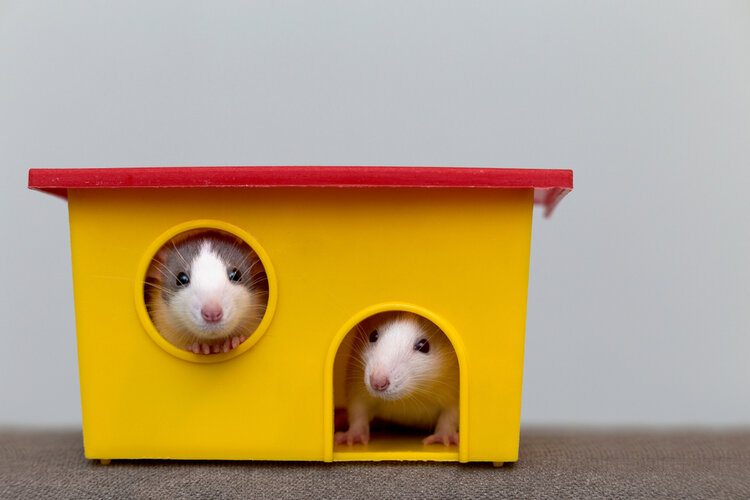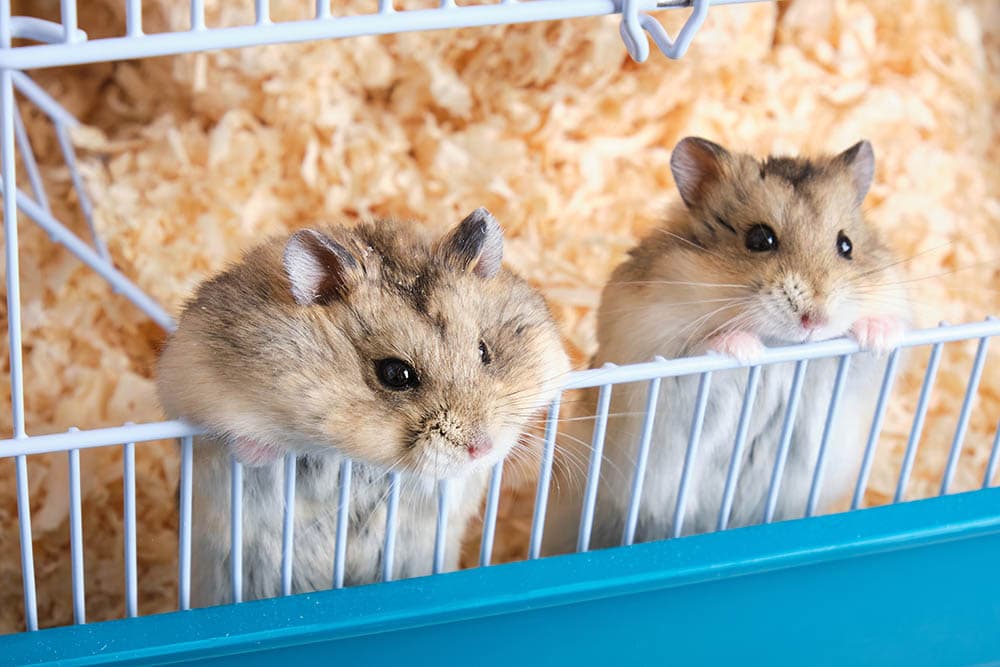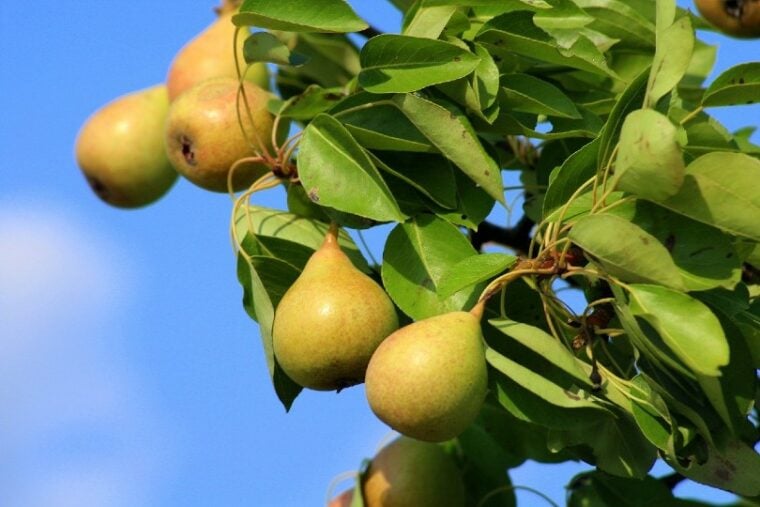
Hamsters love nibbling on new foods, but it’s crucial that you research what’s safe for them to sample and what’s best avoided. For example, can hamsters try some fresh pear? Yes, pear is a crisp, sweet treat that’s safe and even healthy for hamsters in moderate servings. Pear packs fiber, vitamins, and minerals, but it also packs a lot of sugar.
If you’re interested in exactly what’s in pears and what it does for your hamster, you’re in luck. We’ve outlined not only the nutritional content of pears for hamsters, but if pears can be unhealthy, what other fruits you can try, and more. Read on below for those details to get your hamster’s diet spiced up today!
Nutritional Content of Pears for Hamsters
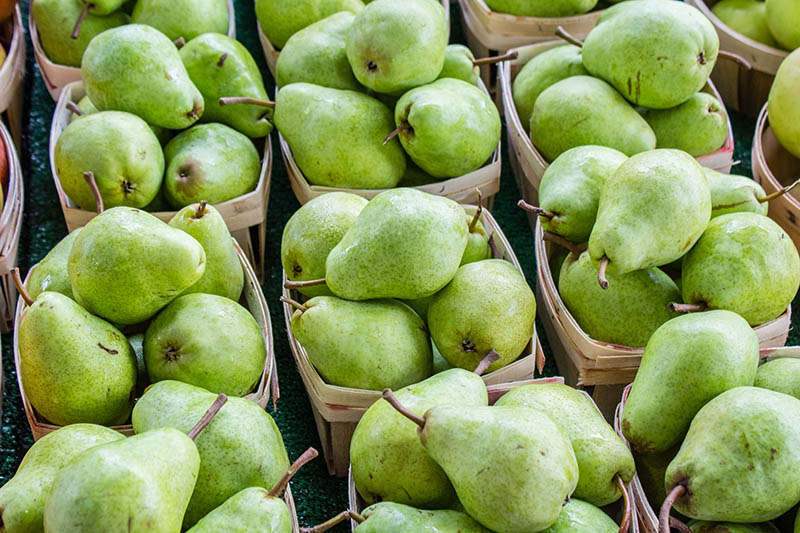
You probably think of pear as a healthy fruit, and it is! Pear has several key nutrients that are healthy for both hamsters and humans, but it’s also notably high in sugars. For critters their size, just a little will get them the best nutrients while minimizing exposure to excessive sugar. Peruse some of the pear’s nutritional content below to educate yourself more closely on the subject.
Can Pears Be Harmful to My Hamster?
Yes, a pear can be actively harmful to your hamster if they eat a lot of it at once or if they regularly eat it. A little won’t hurt them and can be very healthy, but you should also be aware of the risks that pear can pose to your hamster. Consider some of those risks below.
Can My Hamster Eat Canned Pears?
No, you shouldn’t feed your hamster canned pears or any type of canned or prepackaged fruit. These fruits are almost always slathered with extra sugar, high fructose corn syrup, and other harmful preservatives that can be unhealthy for your little furry friend. Always choose fresh fruit to treat your hamster, washing and deseeding it very thoroughly to wash off any trace pesticides or bacteria.
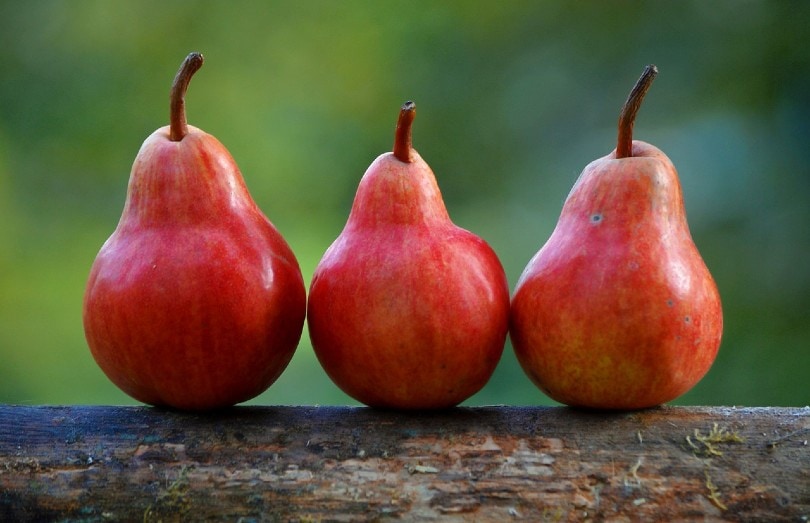
What Other Fruits Can Hamsters Eat?
We know now that hamsters don’t really need a lot of sugary fruits in their diets, but fruits are a great way to treat them to something special and healthy too. Let’s explore some other fruits you can share with your hamster, all while keeping moderation in mind!
Be aware that all fruits are high in natural sugars, so feeding small amounts a few times a week is ideal.
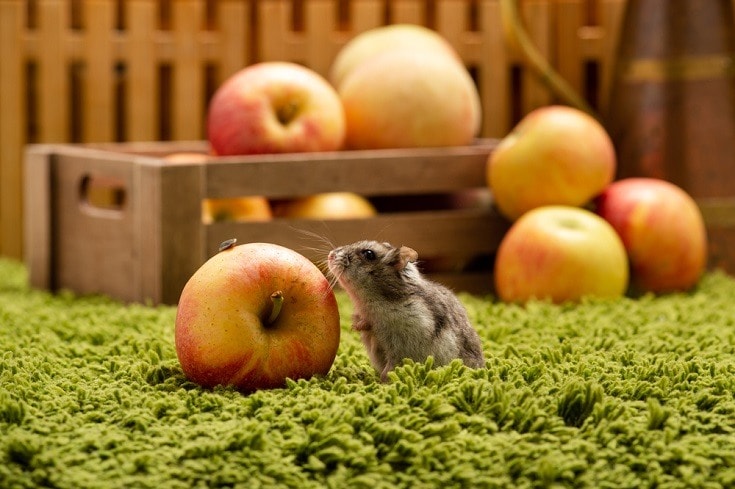
What Should Hamsters Normally Eat?
Treats are great, but most of your hamster’s nutrition comes from ensuring they get a complete mix of all the nutrients they need to thrive. You can’t exactly simulate what they eat in the wild, but high-quality commercial pellet mixes keep your hamster as healthy as they can possibly be. 90% of a hamster’s diet should be their pelleted food, with only 10% being treats. Treats can include vegetables, small amounts of fruit and even some protein like a bit of boiled egg if you’re feeling adventurous! Take a look at some of the stuff a hamster should eat to stay happy and healthy below.
What Do Hamsters Eat in the Wild?
You might think hamsters are herbivores, but they’re not! In the wild, hamsters prefer a diet of cereal grasses, seeds, grains, and insects, and they don’t turn down the occasional frog or lizard either. In fact, a hamster’s diet needs to contain between 15-25% protein. In captivity, we try to replicate this as much as possible. The best way to do this is with a good-quality hamster pellet which you can be sure has the correct balance of nutrition for your little fur-ball to thrive on.
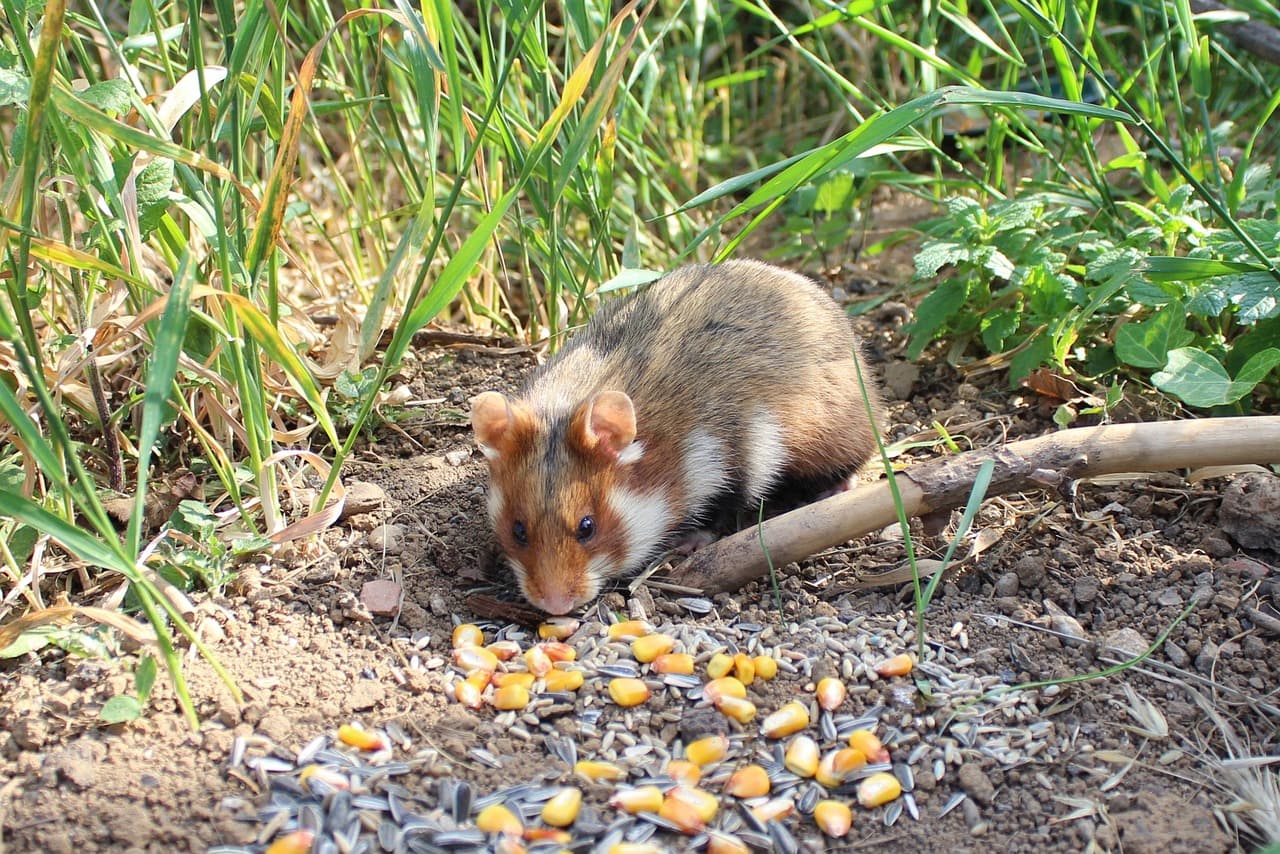
Conclusion
Hamsters aren’t picky eaters and they will enjoy a tiny slice of pear once in a while. However, they should be getting most of what they need from their daily diet of pellets and plant matter. Choose crisp pears, wash them, remove the seeds, and make sure to slice them into very fine chunks before offering them to your hamster once every week or two for best results.
Featured Image Credit: _Alicja_, Pixabay


